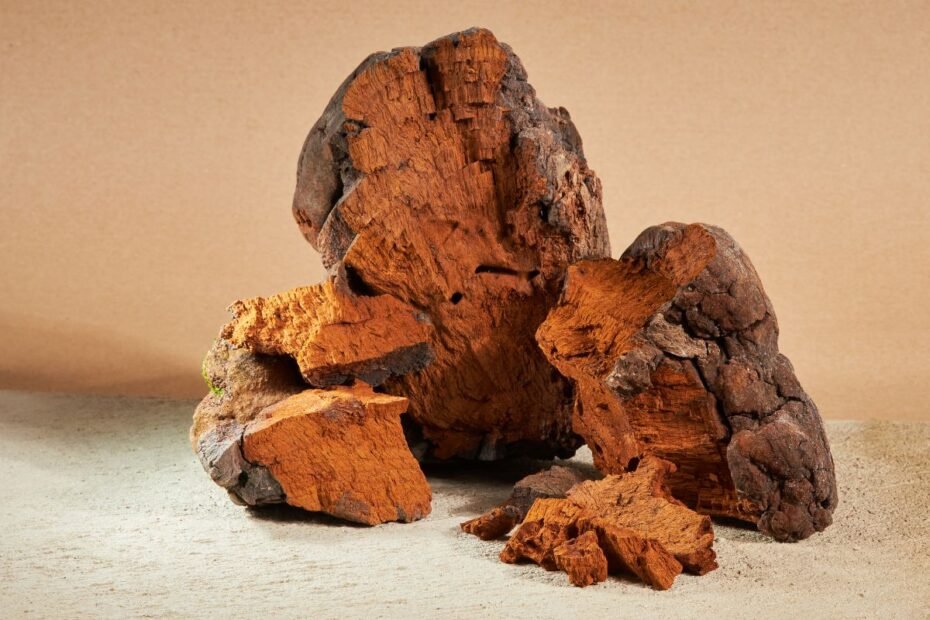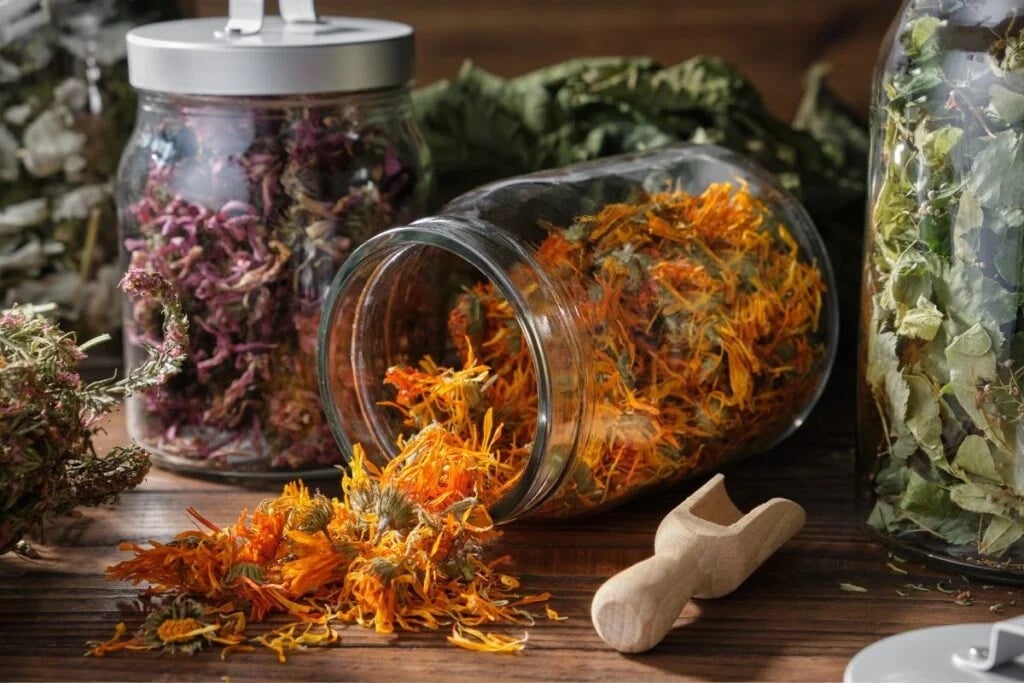Chaga isn’t your average supermarket find or usual pizza topping, yet it’s increasingly finding its place in people’s pantries.
So, what makes this odd-looking mushroom so exceptional and sought-after?
Discover Chaga mushroom tea benefits that make it a valuable addition to your wellness routine.
Where Do Chaga Mushrooms Grow?
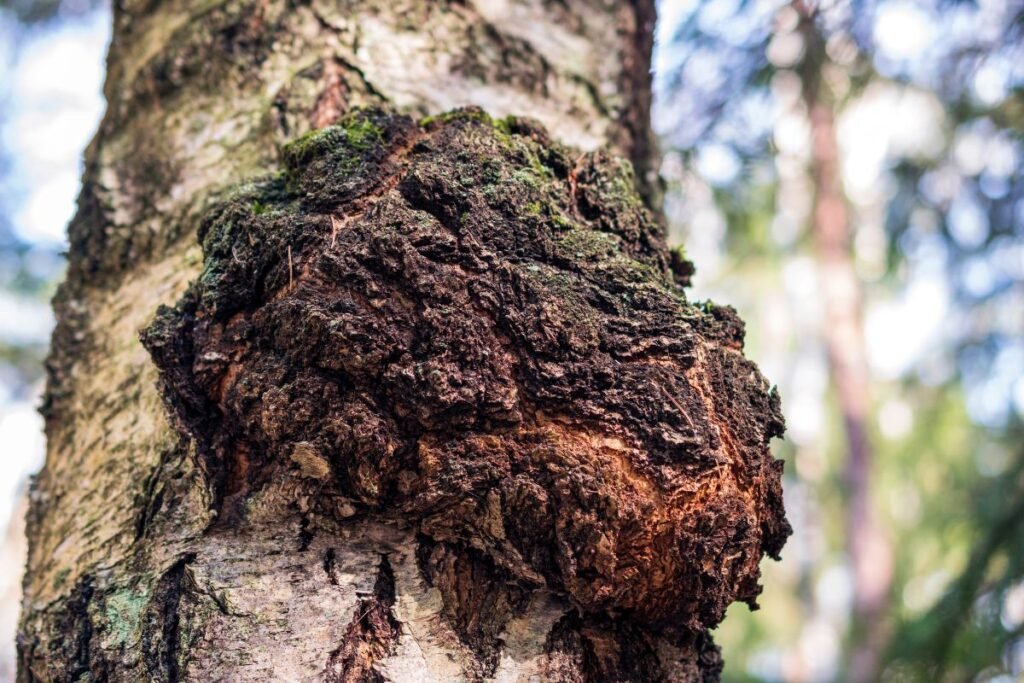
Chaga mushrooms (Inonotus obliquus) are parasitic fungi that grow on birch trees in the wild. They’re common in regions with subarctic temperatures, including Russia, Siberia, Canada, Alaska, parts of Northern Europe, and some northern areas of the United States.
You’ll often find them as irregular, charred-looking chunks, called conk, on tree bark. They look like charcoal briquettes on the outside, while the inside is soft, golden brown, and cork-like.
People have been using these mushrooms in traditional medicine since ancient times.
In other hosts like alder, ash, beech, and poplar trees, Chaga mushrooms look like a patch of decayed wood and don’t contain the same beneficial compounds.
Chaga Mushroom Tea Benefits
Here’s why you should give Chaga mushroom tea a try:
1. Supports Gut Health
Chaga is a staple in Eastern medicine, with a long history of use for improving digestion and treating digestive issues.
According to research, Chaga supports the growth of good bacteria in your gastrointestinal tract. It contains melano-glucan complexes, microbe-fighting compounds that can balance gut flora.
Oxidative stress happens when there aren’t enough antioxidants to fight free radicals. A study found that Chaga reduced cell damage by suppressing this reaction in the blood of patients with inflammatory bowel disease (IBD).
A similar study had comparable results—Chaga extracts minimized swelling and damage in the colon tissues of mice with colitis, another type of IBD.
2. Protects the Heart
Chaga tea works wonders for your ticker thanks to its high polysaccharide content.
An animal study showed that this heart-friendly compound could lower bad cholesterol while giving good cholesterol a boost in rats fed a high-fat diet. This balancing effect helps keep heart diseases at bay.
Polysaccharides have also been shown to lower high blood pressure by blocking enzymes that can constrict blood vessels.
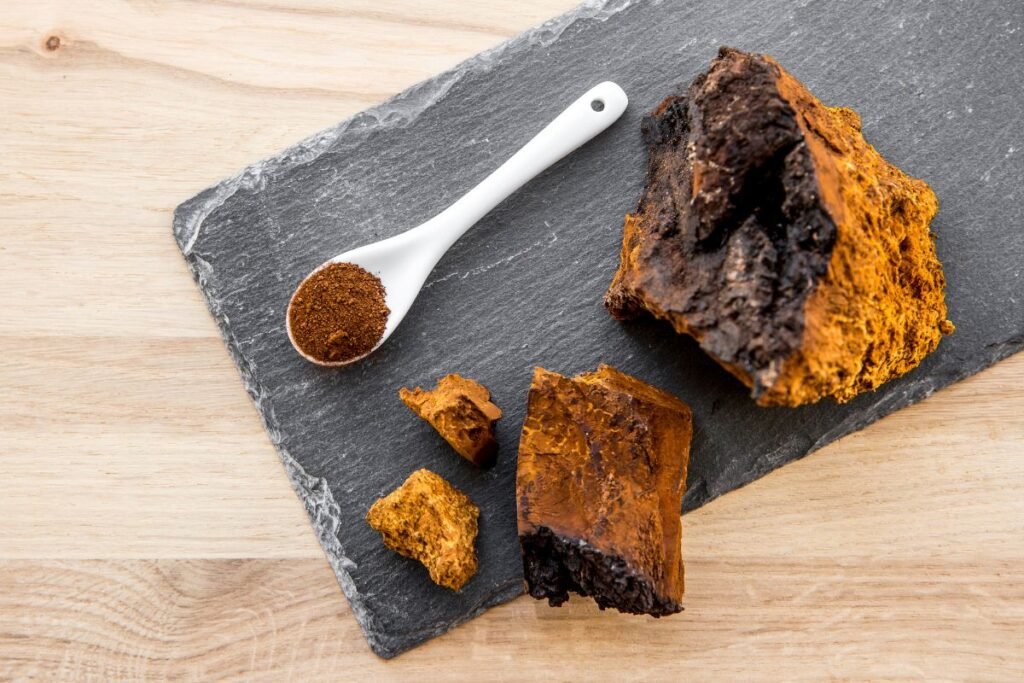
3. Reduces Inflammation
Inflammation is our body’s natural response to injuries and infection. It becomes a problem when it’s chronic, causing various diseases, from asthma to cancer.
One study found that alcohol extracts from Chaga are packed with phenolic acid, known for fighting inflammation and neutralizing harmful toxins.
When steeped in boiling water outside of a teabag for six minutes, it releases an even stronger inflammatory response.
4. Protects Liver
Loaded with antioxidants, Chaga combats the toxin Microcystin, which can cause oxidative stress and cellular damage to the liver.
It’s also rich in betulinic acid, a well-studied compound that can fight alcohol-induced liver damage and fibrosis.
Plus, it has plenty of polysaccharides that can shield the liver from toxins.
5. Fights Cancer
A study found that Chaga mushrooms showed strong anticancer and anti-tumor properties because of the following compounds:
- Betulin
- Betulinic acid
- Inotodiol
These bio-actives can help fight cancer by slowing the growth of cancer cells and triggering the death of mutated cells.
Chaga extracts only target cancer cells, unlike modern treatments that also harm healthy cells.
Chaga Mushroom Tea Side Effects
In one case study, a patient showed symptoms of acute kidney damage after taking excessive amounts of Chaga powder (10–15 grams daily) for three months.
Chaga is also a high-oxalate food, which can raise your risk of kidney stones. If you have a history of kidney stones and other kidney issues, avoid Chaga tea at all costs.
Besides, Chaga may interact with other medications. If you’re taking blood thinners, insulin, or other diabetes medicines, it’s best to steer clear. Chaga can lower blood sugar and slow blood clotting even more.
And while mushroom has inflammatory properties, it can also rev up your immune system. That’s a double-edged sword for people with autoimmune issues.
Remember, drink Chaga tea in moderation and check in with your doctor if you’re thinking of making it a regular part of your diet.
How to Make Chaga Mushroom Tea Powder
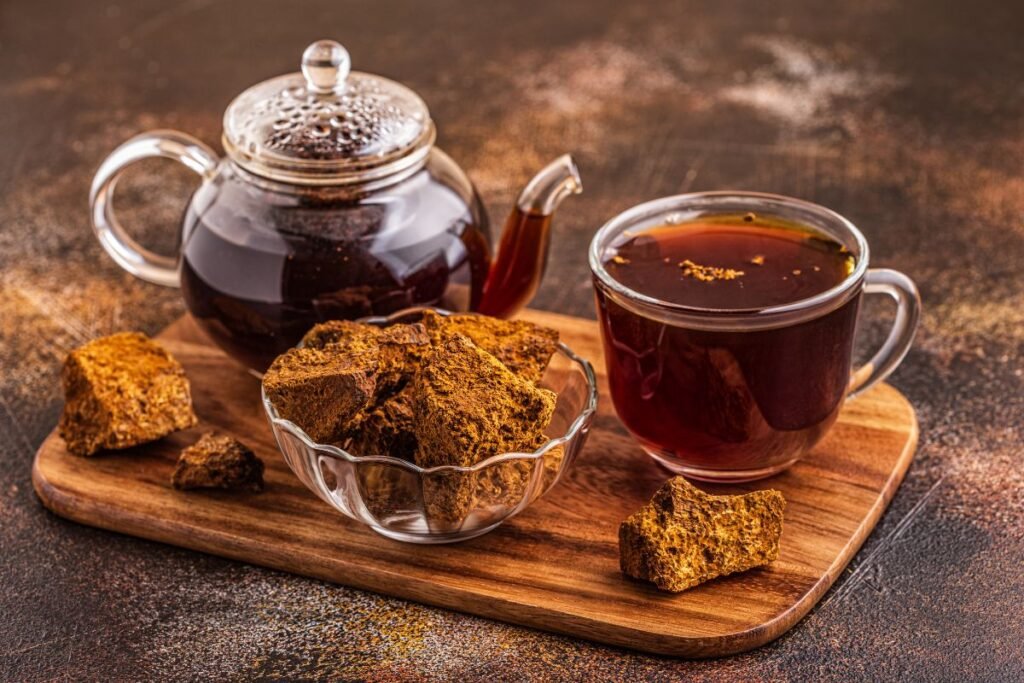
If you’re feeling adventurous, you can forage the mushrooms yourself. Head out during winter when that black mass pops against the white blanket of snow, and use a small axe or hatchet to remove the mushroom from the tree.
Also, you can just grab Chaga chunks from your local farmer’s market, a specialty food store, or online.
Now, here’s how to prepare your Chaga powder:
- Wash your Chaga mushrooms under running water. Use a soft-bristled brush and cloth to remove all dirt and debris, paying extra attention to the crevices.
- Use a chisel to scrape off the black crust until you expose the burnt orange interior, where the nutritional gold is.
- Lay down some newspaper, grab a cutting board, and chop your Chaga into 1-inch pieces. Or, wrap the chunks in a kitchen towel and break them into smaller bits with a hammer.
- Arrange the Chaga pieces on a tray, ensuring they’re not overcrowded.
- Let them air-dry on a sunny spot for 6–8 weeks or until dry and crumbly. No time to wait? Pop them in an oven set to 122°F and bake for eight hours.
- Once fully dry, grind the mushrooms into a fine powder using a coffee grinder, blender, or even a mortar and pestle.
- Transfer your freshly ground Chaga powder into an airtight container and store it in a cool, dry place. You can use the powder for up to a year.
Simple Chaga Mushroom Tea Recipe
You’d think that dark, wild Chaga might taste strong and bitter. But, surprise! A high-quality Chaga tea is pretty mild, slightly sweet, and with a hint of fruity flavor.
Here’s a quick recipe for making one cup (8 oz) of Chaga mushroom Tea:
- Add 2–3 teaspoons of Chaga powder to a tea bag or teapot infuser.
- Pour boiled water into your cup or pot.
- Steep for 10 to 15 minutes and remove the tea bag.
- Sweeten it up with sugar, honey, or maple syrup.
- Optional: Add milk for a caffeine-free alternative to your morning coffee.
Final Thoughts
And there you have it—Chaga mushroom tea benefits to support your health and well-being.
As with any herbal drink, talk with your doctor before adding Chaga tea to your routine. And remember, moderation is key, so sip responsibly!
